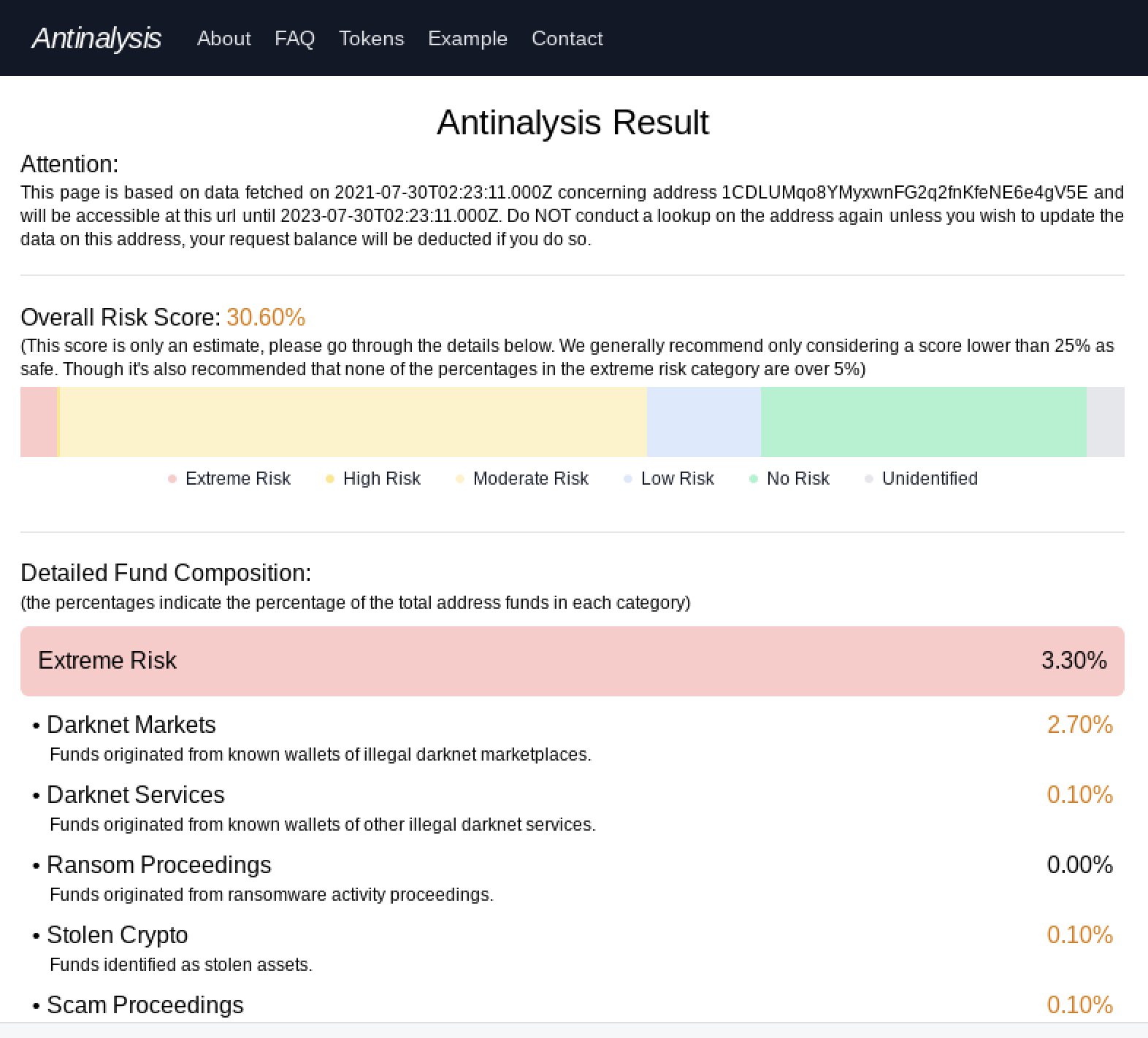A Service That Helped Cybercriminals Launder Money With Crypto Shut Down
Analysis paralysis
A dark web service called Antinalysis that made it easier for cybercriminals to launder money with cryptocurrency by analyzing their risk of being flagged by law enforcement was brought down shortly after it was revealed to the public.
The service was discovered by a firm called Elliptic that uses blockchain analysis to help crypto asset companies meet regulatory anti-money laundering requirements. Elliptic shared its findings in a blog post on August 13, and the BBC was quick to report on "the fiendish new trick cyber-criminals are using to evade capture."
The trick? Following law enforcement organizations and companies like Elliptic in offering blockchain analysis to determine how suspicious a cryptocurrency wallet is. Cybercriminals could use the tool, which reportedly charged $3 for a Bitcoin wallet scan, to see if it was safe to launder the funds via regulated exchanges.

Antinalysis reportedly offered an overall risk score for the scanned Bitcoin wallet and individual breakdowns of specific funds. "Proceeds of darknet markets, ransomware, and theft are considered to be 'extreme risk,'" Elliptic said, "while funds from regulated exchanges and freshly-mined coins are classed as 'no risk.'"
The BBC wasn't alone in its swift response to Elliptic's findings. Someone using the "Pharoah" pseudonym who claimed to be a founder of the group operating Antinalysis said in a message to BBC reporter Joe Tidy that it suffered "the unlawful warranted seizure of our data source eight hours" after Tidy's report was published.
The creator of this darknet service has contacted me with a statement. They say the site was taken down 8hrs after our report came out and that it is not designed just for criminals: https://t.co/OK39RV6jHd pic.twitter.com/LNLMcHVL4xAugust 16, 2021
This hardly comes as a surprise. Regulators have seemed increasingly keen on combating the use of cryptocurrency to launder money: China has heavily restricted the use of cryptocurrency alongside its ban on mining, the European Union is looking to restrict private wallets, and the U.S. has also considered stricter crypto rules.
Law enforcement organizations have also become more effective at enforcing those rules. One particularly notable example was the Metropolitan Police Service seizing roughly $400 million (£294 million) worth of cryptocurrency in June and July as part of—you guessed it—an investigation into a money laundering scheme.
Get Tom's Hardware's best news and in-depth reviews, straight to your inbox.
The Block reported that Antinalysis' operators characterized its shutdown as temporary, so the service could make a comeback after it recovers from the loss of its data source. Of course, it also wouldn't be surprising if Antinalysis were followed by similar criminally-inclined blockchain analysis tools, either, following all this hype.

Nathaniel Mott is a freelance news and features writer for Tom's Hardware US, covering breaking news, security, and the silliest aspects of the tech industry.